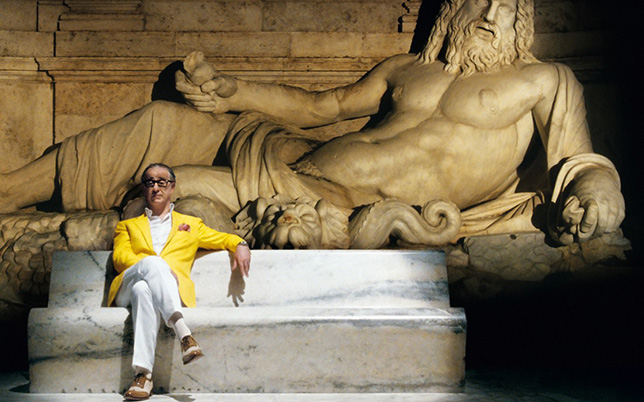
- Industry
Paolo Sorrentino (The Great Beauty)
The beauty of Paolo Sorrentino’s The Great Beauty, the Golden Globe nominee which also just made the Foreign Language Oscar short list, is that everyone, whether cinephile, regular moviegoer or film critic, has his or her own opinion about the film. And when it comes to this Italian entry there are apparently few half-measures. Everyone agrees that the film is a provocative and ambitious work, a throwback to Fellini’s La Dolce Vita and yet at the same time very much its own movie. Sorrentino channels Fellini’s spirit while setting his story in present-day Rome. Is it the decadent and surreal allure of the city the title refers to? Yes and no. The film tells the story of Jep Gambardella (Toni Servillo), a Neapolitan writer and journalist who has been living in Rome since he was in his late 20s (Sorrentino, 43, is also originally from Naples). Jep delves with gusto and abandon in the “sweet life”, a contemporary “dolce vita”. Through his cynical eyes we vicariously experience the life of Rome’s rich and powerful: The wild parties, the endless idle chats, the pretentious intellectualism, the hedonistic abandon of a privileged chaste, morally debauched and pathetically detached from reality.
In this plotless movie filled with allegorical imagery wonderfully photographed in The Eternal City (by Luca Bigazzi), the witty and well spoken Jep ends up being the ethical center of gravity, his melancholic longing for a simpler life and beauty (such as the Mediterranean sea he sees as a mirage on his bedroom’s ceiling).
Sorrentino’s film won the 2013 European Film Award as best movie of the year. It’s one of the most acclaimed as well as discussed and dissected Italian films of the past few years. “I really intended to make a meditation and a commentary on certain Italian men,” the director says about Great Beauty (which he also co-wrote with Umberto Contarello). “A meditation on the shabbiness so typical of eternal vacationers, which is the fertile topsoil from which springs the inspiration behind so much great Italian cinema.”
The film and its director, hailed by Italian reviewers, has received great attention in the US, where it opened last November. On the the Los Angeles Times, Kenneth Turan called it “drop-dead gorgeous, a radiant work on the meaning of life beyond high society with Toni Servillo in exquisite mode.” The New York Times considered it a “deliriously alive movie” while The New Yorker declared “the face of Toni Servillo one of the treasures of modern cinema”. The Village Voice described the film as “so rambunctious and densely inhabited it’s a movie you visit, not merely watch, (…) also one of the greatest films about modern social dissolution.”
When the nominations were announced Sorrentino declared from Rome: “I’ve always been fascinated by these fantastic Hollywood awards, and the idea of being there, for once, instead of watching them on television, provides me with an incredible feeling. This is so new, and therefore mysterious and fascinating, for us Europeans, something we don’t know. I am particularly happy to be at the Golden Globes with this film.” “It feels like all my other films were a preparation towards this one. It is the most ambitious and most accomplished film I have made, and it is the one I love most because being so ambitious it was also quite dangerous to do. All ambitious films expose you to failure and knowing that the journalists of the HFPA, working in the Mecca of cinema, acknowledge that perhaps I didn’t fail, fills me with joy and satisfaction.”
Silvia Bizio

